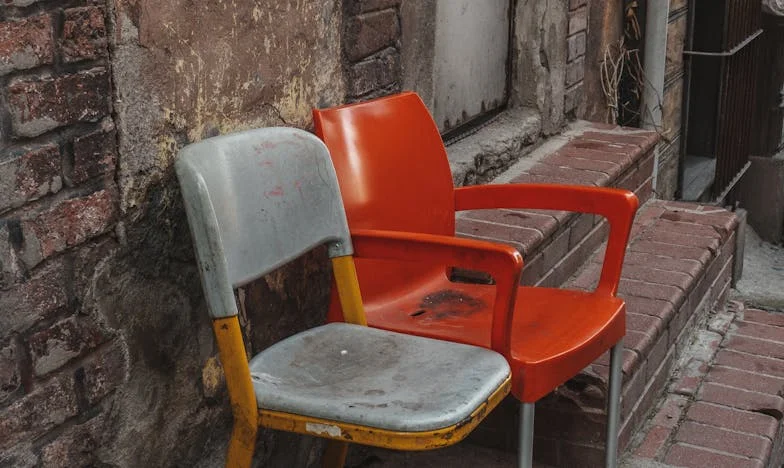When the Man I Loved Became a Stranger: A Wife’s Escape from the Unimaginable
“Get away from me, Emily! I said I don’t want anyone in this damn room!” Daniel’s voice, once so gentle, ripped through the hallway like a thunderclap. I froze in the doorway, my hands trembling around the tray of soup I’d made, the bowl rattling against the plate. Just a year ago, I would have laughed if someone told me I’d be afraid to enter my own bedroom—afraid of the man I’d loved for twelve years.
I set the tray down on the floor and backed away. I could hear our daughter, Sophie, just ten, breathing quietly behind the wall, clutching her stuffed rabbit. My heart ached for her—a year ago, she would have run in and leapt into Daniel’s arms, squealing with delight. Back then, we were the family everyone envied: two kids, a house on a leafy street outside Chicago, laughter echoing through the rooms. Daniel was the father who built elaborate pillow forts, the husband who left sticky notes on the fridge reminding me to smile. He was my best friend.
But last spring, Daniel had a stroke. It should have been a wake-up call, a chance for us to pull together. Instead, something inside him broke. His body recovered, but his mind turned on itself—and on us. He was angry, volatile, a stranger with my husband’s face. The doctors called it post-stroke psychosis, and warned it could happen. But no one told me what to do when the man you love starts shouting at your children, when he holes up for days, refusing to eat, convinced you’re poisoning his food.
“Mom, is Dad okay?” Sophie’s voice was a whisper, her blue eyes wide. I crouched down and pulled her close. “He’s just having a tough day. Let’s go play outside for a bit, okay?” But I saw the fear that had settled into her like a shadow.
Nights were the worst. Daniel would pace the upstairs hallway, muttering to himself, sometimes banging on the walls. I slept with my phone under my pillow, ready to call 911. Our son, Max, only seven, wet the bed every night. When I tried to talk to Daniel, he accused me of plotting against him. “Why are you always whispering on the phone? Who are you talking to? Are you planning to take the kids and run?”
The worst part was how alone I felt. My mother, back in Ohio, said, “You made vows, Emily. Sickness and health, remember?” My friends stopped inviting us to barbecues. I lied about Daniel’s absence, making excuses for his outbursts. Only my sister Rachel seemed to understand. “You can’t help him if you’re falling apart,” she said, holding my hand tight. “And the kids… Emily, they’re scared.”
One night, it all came crashing down. Daniel smashed a plate on the kitchen floor, accusing me of hiding his medication. The kids were screaming, cowering in the corner. Something snapped inside me. I scooped the kids into the car, drove through the night to Rachel’s house in Milwaukee, the city lights blurring through my tears.
Rachel opened the door at 2 a.m. without a word, just pulled me into her arms. For the first time in months, I felt like I could breathe. The next morning, I called Daniel’s doctor. I called a lawyer. I called my mother and told her everything. The shame was overwhelming.
I moved in with Rachel. The kids started at a new school. We kept in touch with Daniel’s doctors, but he refused help, blaming me for everything. The guilt gnawed at me. Was I abandoning him? Should I have fought harder? But every time Max flinched at a loud noise, or Sophie asked why Daddy didn’t call, I knew I’d made the only choice I could.
The hardest moment was telling the kids we wouldn’t be going back. “Daddy needs help that we can’t give him right now,” I said, voice cracking. Sophie cried for days. Max drew angry pictures. I wondered if they would ever forgive me—or if I could ever forgive myself.
Some nights, I lie awake replaying every fight, every moment I might have done something different. Did I fail him? Did I fail our family? I remember the man I married, the way he’d hold me during thunderstorms, the smell of his cologne, the way he’d whisper, “We’re a team, Em.” I want to believe that man is still in there somewhere. But I had to save myself, and our kids, first.
Now, a year later, things are calmer. The kids are laughing again, making friends. I found a job at a local library. Sometimes, I catch myself smiling. Sometimes, I still pick up the phone, about to call Daniel with some small news, before I remember.
People ask me if I regret leaving. I don’t know how to answer. I miss him—who he was. But I had to choose between loving my husband and saving my family from him. No one tells you what that feels like, or how to live with the choice.
Was I wrong to run? Is there ever a right way to save yourself when the person you love becomes a stranger? Would you have stayed—and at what cost?
